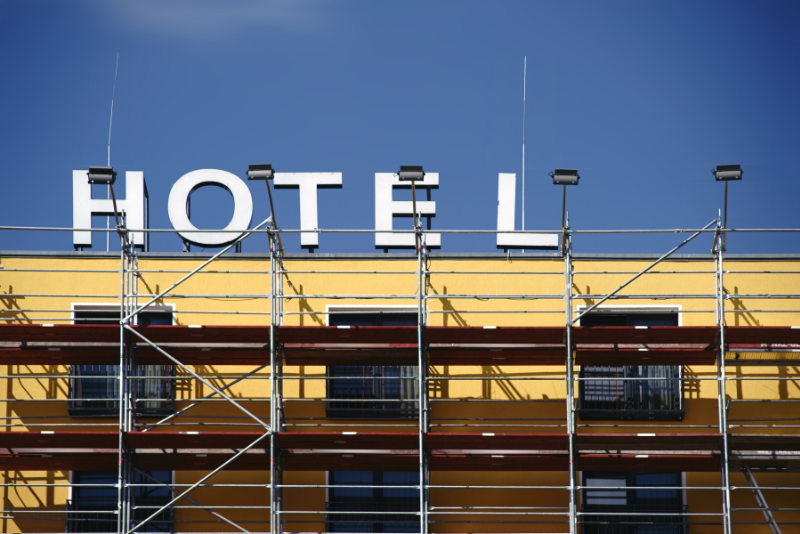In 2019, hotels across the country experienced a tremendous bull run from the last recession. Capital was abundant, supply was plentiful, and demand was high. Enter the COVID-19 pandemic of 2020. The hotel industry halted abruptly with stay-at-home orders and nationwide lockdowns. Occupancy and revenue for hotels plummeted to record lows.
Many industries struggle to adapt to pre and post pandemic eras. The hotel industry, however, has true market adaptability. When markets were hot and tourism was thriving, all sorts of assets were converted into hotels. Historic buildings and old structures all created uniquely distinguishable boutique-style hotels and downtown hotel conversions. Fast foward through the pandemic market cycle. Hotels are now converting into all sorts of adaptive uses. Some of these uses are multifamily, senior housing, rehab facilities, and much more. Hotel conversions have allowed owners to find value in struggling businesses. New investors can seize an opportunity by creating savings. These savings are in a market with high barriers to entry and soaring construction costs.
What Is A Hotel Conversion?
Hotel conversion is repurposing a hotel to any use other than a hotel. The cost of construction is a significant factor in every development. In recent years the cost has reached record levels, often deterring developments. Using a hotel and remodeling it for other uses can create immense time and expense savings. This could take a variety of forms. An existing hotel could convert into multifamily units, student housing, or even an assisted living home. When conversion meets current market needs, it can be a lucrative investment opportunity.
Benefits of Hotel Conversion as a Business Opportunity
The primary reasons for hotel conversion include cost efficiencies, speed to market, and ease of adaptability. Converting a hotel allows developers to acquire a hotel structure and remodel it. They are doing so with significant savings over new construction. In most cases, hotels are built in prime locations. The location can provide many advantages, like entry into marketplaces where real estate can demand a premium price.
For example, building a new 100 unit apartment building may cost upwards of $125,000 per unit for a developer. Acquisition of the hotel costs $70,000. The developer invests an additional $30,000 per unit to remodel the hotel into apartments. The developer instantly creates a savings/profit of $2,500,000 on a 100 unit building.
Conversion Benefits That Impact the Community and Marketplace
Many communities are currently desperate for more housing. The pandemic has generated a dire need for transitional housing and emergency housing. There are many areas of need ranging from traditional multifamily housing to affordable housing, student housing, and even veteran housing, are some examples. Unfortunately, developers can’t deliver fast enough due to high costs. Where land, labor, and materials were expensive before the pandemic, expenses are even pricier now.
With hotel conversions in the pipeline, developers hope to address the demand needs for housing. They will deliver at unprecedented speeds with the ability to convert hotels.
The Bottom Line
In an era of pandemic and political turmoil, the hotel industry clearly demonstrates resilience and adaptability. Converting hotels has created a vision for developers. Developers can address community and market demands faster and cost-effectively.
This all makes for a perfect investment opportunity. Buyers can come in at low prices and offer potential residents of these multi-family units great value. On the flip side, this also gives investors a solid return on their investment.


